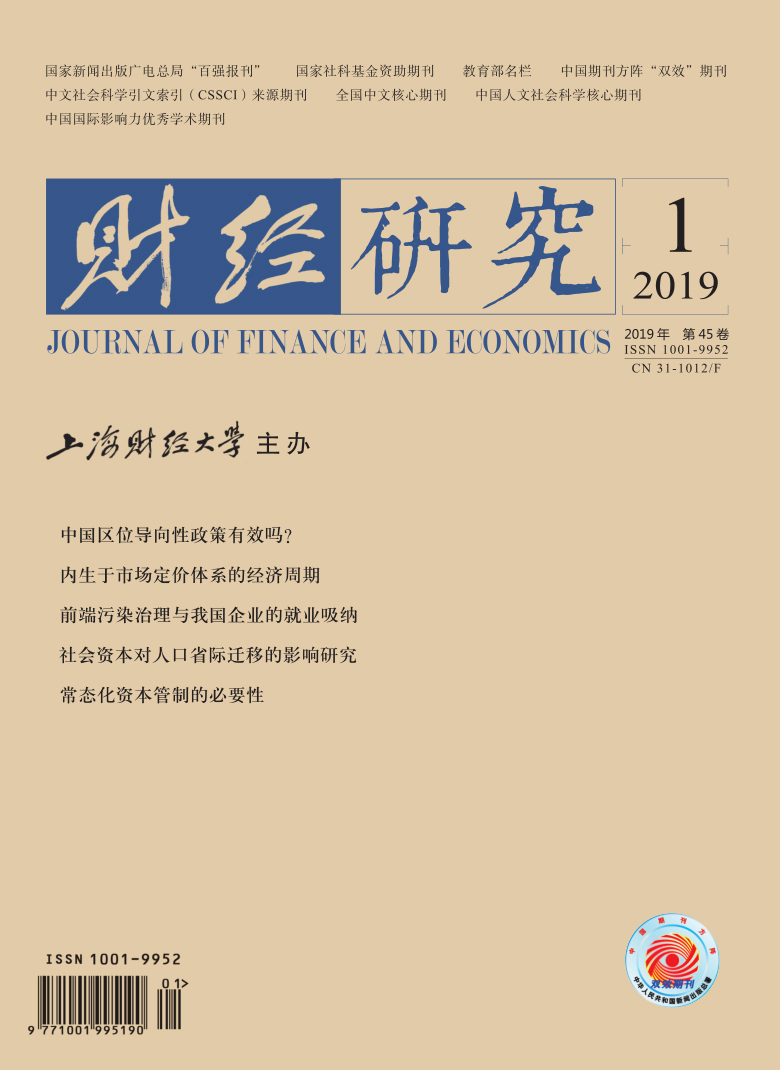The purpose of this paper is to investigate whether there is a reciprocal relationship between the government and enterprises. The previous literature in the field tends to put it under the framework of the collusion theory, to interpret from the perspective of the exchange of interests, and to explain the negative consequences caused by the collusion when discussing the reciprocal relationship between the government and enterprises previously. However, we believe that the reciprocity between the government and enterprises is not completely involved in the concept of collusion between the government and enterprises, and the two should be cross-cutting. Therefore, through studying the relationship between government subsidies and corporate tax avoidance behaviors, we find the mutual support between the government and enterprises, that is, enterprises plan to establish and maintain the mutual trust between the government and enterprises, and the higher degree of government subsidy support makes the lower degree of tax avoidance. The tax avoidance of enterprises as an opportunistic behavior reduces the outflow of economic benefits in the short term, which is in line with the short-term interests of enterprises, but in the long run, it encourages its short-sighted behavior, reduces the quality of financial information of enterprises, and damages the credibility of enterprises in government departments. It is not conducive to the sustainable development of enterprises. From this point of view, the tax avoidance motive weakened by the current government subsidies is in line with objective reality and economic law, and enterprises show an economic and rational side in their behavior. Considering that there may be a reverse causal problem between government subsidies and corporate tax avoidance in this paper, we use the instrumental variable method and the method of establishing the simultaneous equations model to further verify the hypotheses of this paper. The results still support our conjectures. In addition, the conclusions of this paper are still robust after controlling the individual’s fixed effects, the measurement error of the variables, and the sample selection problem. In further research, we find that the role of government subsidies in suppressing the tax avoidance of enterprises is only significant in the sample of non-state-owned enterprises. The reason why government subsidies can reduce corporate tax avoidance is partly because government subsidies can weaken the incentives for corporate earnings management, thus improving the information environment of enterprises. We also find that when the higher amount of government subsidies received the higher level of tax avoidance in the current period induces the greater level of damage to their market value. Market investors have a negative attitude towards the behavior of enterprises which undermines the reciprocal relationship with the government. This paper verifies that there is a positive reciprocal relationship between the government and enterprises, and proposes amendments and supplements to the research conclusions of the predecessors based on the principal-agent theory and the rent-seeking theory. The research in this paper has certain enlightenment for the orderly operation of China’s market economy, which is still in the transitional economy period. Enterprises actively and orderly participate in, the government adjusts in a fair and orderly manner, market resources can be allocated reasonably and orderly, and finally, we can effectively safeguard the interests of market investors.
 / Journals / Journal of Finance and Economics
/ Journals / Journal of Finance and EconomicsJournal of Finance and Economics
LiuYuanchun, Editor-in-Chief
ZhengChunrong, Vice Executive Editor-in-Chief
YaoLan BaoXiaohua HuangJun, Vice Editor-in-Chief
Will Government Subsidies Affect Corporate Tax Avoidance?
Journal of Finance and Economics Vol. 45, Issue 01, pp. 109 - 121 (2019) DOI:10.16538/j.cnki.jfe.2019.01.007
Summary
References
Summary
Chen D Q,Chen Y S,Dong Z Y. Policy uncertainty,tax enforcement and corporate tax avoidance[J]. Management World,2016,(5):151-163.(In Chinese)
[2]Chen D,Kong M Q,Wang H J. Return a favor with a favor:Business cycle and tax avoidance of state-owned enterprise [J]. Management World,2016,(5):46-63.(In Chinese)
[3]Fang Z Y,Tian B B. Collusion for evasion:evidence from the rotation of NTB’s directors in China[J].China Economic Quarterly,2016,(4):1303-1328. (In Chinese)
[4]Guo Y. Signal transmission mechanism of government innovation subsidy and enterprise innovation.[J]. China Industrial Economics,2018,(9):98-116. (In Chinese)
[5]Jin T J,Yuan J J. A government-enterprise exchange model and its evolutionary laws:A micro perspective for examining the underlying mechanism of corruption[J]. Social Sciences in China,2011,(1): 102-118. (In Chinese)
[6]Liu X,Ye K T. Does corporate tax avoidance affect investment efficiency?[J]. Accounting Research,2013,(6):47-53. (In Chinese)
[7]Nie H H,Li J B. Collusions between governments and firms and economic development[J] .China Economic Quarterly,2007,(1):75-90. (In Chinese)
[8]Wang L L. External financial shocks, financial constraints, and corporate tax avoidance[J].Nankai Business Review,2016,(1):155-168. (In Chinese)
[9]Wang Q M,Han Q X,Yang C. Government subsidies and corporate behavior in strategic emerging industries:A perspective of dynamic game based on government regulation[J].Journal of Finance Ecomomics,2014,(7):43-53. (In Chinese)
[10]Wen Z L,Hou J T,Zhang L. A comparison of moderator and mediator and their applications[J]. Acta Psychologica Sinica,2005,(2):268-274. (In Chinese)
[11]Zhang Y B,Zhu H,Fan Z J. The effect of local subsidy competition on excess capacity in china: Empirical study based on propensity score matching-DID[J].Journal of Finance Ecomomics,2018,(5):36-47,152. (In Chinese)
[12]Alchian A A. Uncertainty,evolution,and economic theory[J].Journal of Political Economy,1950,58(3):211-221.
[13]Balakrishnan K,Blouin J,Guay W R. Tax aggressiveness and corporate transparency[J]. The Accounting Review,2018.
[14]Chen S P,Chen X,Cheng Q,et al. Are family firms more tax aggressive than non-family firms?[J]. Journal of Financial Economics,2010,95(1):41-61.
[15]Gouldner A W. The norm of reciprocity:A preliminary statement[J]. American Sociological Review,1960,25(2):161-178.
[16]Jensen M C,Meckling W H. Theory of the firm:Managerial behavior,Agency costs and ownership structure[J]. Journal of Financial Economics,1976,3(4):305-360.
[17]Lach S. Do R&D subsidies stimulate or displace private R&D? Evidence from Israel[J]. The Journal of Industrial Economics,2002,50(4):369-390.
[18]Sethi R,Somanathan E. Understanding reciprocity[J]. Journal of Economic Behavior & Organization,2003,50(1):1-2
Cite this article
Deng Bofu, Liu Jiawei, Ji Li. Will Government Subsidies Affect Corporate Tax Avoidance?[J]. Journal of Finance and Economics, 2019, 45(1): 109-121.
Export Citations as:
For
ISSUE COVER
RELATED ARTICLES





 9015
9015  11494
11494

